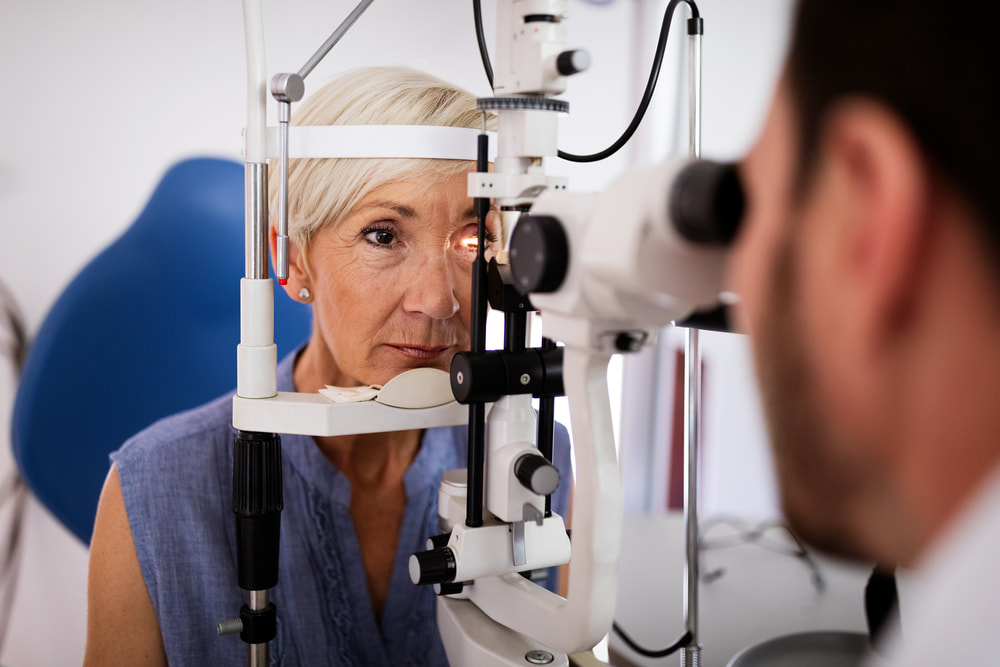RisksThere are several risk factors for developing glaucoma, including the following:
Can you decrease your risk of getting glaucoma?It is not always possible to prevent all instances of glaucoma, but there are steps you can take that may improve your overall eye health and reduce your risk of developing glaucoma. Consider the following: Get to a healthy weightBeing too thin or overweight may raise your risk of glaucoma. The exact reason that people with a BMI that is too low or too high have a higher chance of glaucoma is not entirely clear, but there does appear to be a link. Talk with your doctor about what a healthy weight is for you. ExerciseGetting regular exercise is great for your overall health. It may also reduce your risk of glaucoma. The Glaucoma Research Foundation reports that some studies have found that moderate exercise at least three times at week can lower eye pressure and possibly the risk of glaucoma. Do not smokeSmoking can damage the blood vessels in the body, and that may include the eyes. As a result, smoking may also increase the risk of certain eye diseases. For example, according to the New York State Health Department, smoking increases the risk of glaucoma. Have regular eye examsMany forms of glaucoma have no warning signs, so it is important to have regular eye exams. During an eye exam, your eye doctor can measure your eye pressure and screen for glaucoma. Early diagnosis is optimal to get treatment and maintain good vision. Promptly go to your eye doctor if you experience some of these symptoms of glaucoma: severe headache, eye pain, nausea and vomiting, blurred vision, halos around lights, and eye redness. Wear protective eyewearEye injuries can lead to secondary or traumatic glaucoma. Reduce your risk of eye injuries by wearing the appropriate protective eyewear for the activity you are doing. Eat fruits and veggiesSome research show that eating certain foods may help protect your eyes. Make sure to include plenty of colored berries and veggies in your diet every day. Wear sunglassesIt appears that excessive exposure to the UV rays from the sun may raise your risk of developing glaucoma. To reduce that risk, wear sunglasses when outdoors during the day. Look for glasses that provide close to 100 percent UV protection. Practice good dental hygieneIt might be surprising, but there may be a connection between gum disease and damage to the optic nerve that occurs with glaucoma. Make sure you brush your teeth and floss daily. See your dentist for regular cleanings and treat gum disease early. Talk to your doctor about steroid medicationsIf you take steroids to treat a medical condition, talk with your doctor about other options. But as always, do not stop taking any medication without speaking with your healthcare provider.
We hope the tips above help you reduce your risk of glaucoma. If you have any questions or concerns, we are happy to help. Also, if you would like to ask whether an appointment with one of our eye doctors would be appropriate at this time, call our office at 508-746-8600. Comments are closed.
|
EYE HEALTH BLOGCategories
All
Archives
July 2024
|
|
Kadrmas Eye Care New England
55 Commerce Way, Plymouth, MA 02360
14 Tobey Road, Wareham, MA 02571 133 Falmouth Road (Rt 28), Mashpee, MA 02649 |
Phone Number:
1-508-746-8600 Hours: Monday through Friday — 8 AM – 4:30 PM |


 RSS Feed
RSS Feed
